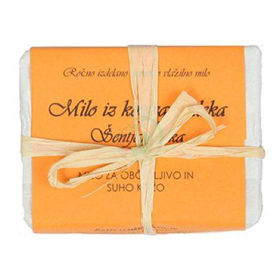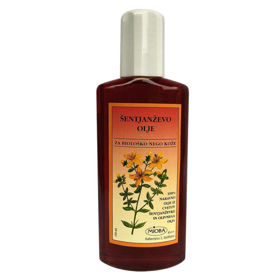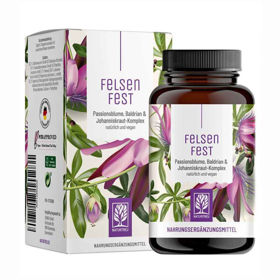Customer question:
For what purposes can St. John's wort oil be used? Please provide more information about St. John's wort. Anonymous customer.
Pharmacist's answer:
St. John's wort is an herb with a yellow flower with five petals. It grows in most parts of the world. The herb got its name from St. John the Baptist because it blooms around his celebration (June 24). The medicinal part of the plant consists of the dried above-ground parts, including the stem, petals, and flowers.
St. John's wort originates from Europe, Western Asia, and North Africa and is widespread in many parts of the world. The stems are erect and can grow up to about 75 cm tall, and the flowers and leaves are part of the plant used to make the extract.
St. John's wort is naturally rich in two chemicals that play a vital role in the functioning and use of this herb. These are hypericin and hyperforin. These and other related compounds are the main active ingredients of St. John's wort.
St. John's wort can be recognized by transparent dots located throughout the tissue or black dots on the lower surface of the leaves. Looking at the leaves through the light, you will notice a speckled appearance. The plant is grown commercially in many areas. Still, it is listed as a noxious weed in many countries because it can replace native plant communities and thus dominate the area and threaten natural ecosystems.
For medicinal purposes, St. John's wort leaves are most often dried and used precisely for their medicinal properties, while yellow flowers are used to prepare oil or tea. The effectiveness of St. John's wort appears after 4 to 6 weeks of regular use. Consider other treatment methods if you do not notice any effect after this time.
St. John's wort can have many benefits and a positive effect on various processes in the body:
- anxiety
- menopause-related problems
- PMS - premenstrual syndrome
- the health of the lower urinary tract - kidneys
- invigorating the body
- psychological state/mood/emotional balance
- mental health
- relaxation/positive mood
- viral infections
- anti-stress action
What are the possible side effects of St. John's wort?
Uncontrolled and unprescribed consumption of St. John's wort can cause various side effects. These include allergic reactions, sedation, gastrointestinal symptoms, headache, skin reactions, dry mouth, fatigue, restlessness, and dizziness. These reactions were generally rated as mild, moderate, or transient.
St. John's wort can also react with certain medications:
- antibiotics, SSRI antidepressants, and triptans
- oral contraceptives
- immunosuppressants and blood thinners such as warfarin
- sedatives and drugs for the treatment of generalized anxiety disorder
- medicines for the treatment of cancer, heart disease, and HIV/AIDS
- over-the-counter medicines for sleep, cough, and cold
Interesting reading: Saint John's wort for joints













